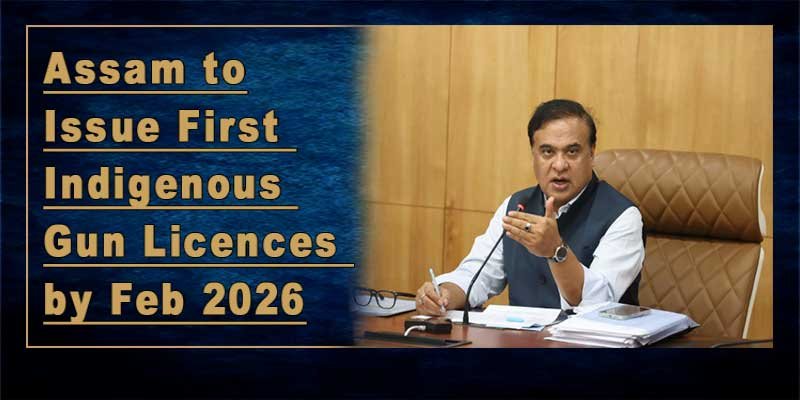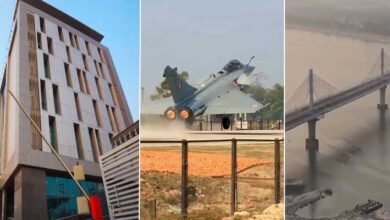Assam to Issue First Indigenous Gun Licences by Feb 2026
Assam to issue its first-ever firearm licenses to indigenous residents in high-risk districts by February 2026, reviving a decades-old demand amid growing security concerns.

GUWAHATI- Assam will issue its first-ever firearm licences to indigenous residents beginning February 2026, Chief Minister Himanta Biswa Sarma announced on Sunday, marking a historic policy shift aimed at safeguarding vulnerable communities in border-adjacent and demographically sensitive districts.
The initiative—approved by the Cabinet in May 2025 and activated through an online portal in August—responds to long-standing demands from indigenous groups in districts such as Dhubri, Nagaon, Morigaon, Barpeta, South Salmara-Mankachar, and Goalpara. Officials say these areas have seen rising anxieties tied to cross-border tensions with Bangladesh and demographic shifts that have left “original inhabitants” as minorities.
Also Read- Eviction Drive Displaces Over 580 Families in Forest Reclamation Push
During his address, Sarma framed the move as a matter of identity and survival. “Indigenous people in certain districts face persistent insecurity, especially given recent developments in Bangladesh,” he said, invoking the BJP’s long-running slogan: “jati, mati aru bheti” (identity, land, and homeland). Thousands of applications have been submitted since the portal went live, with authorities currently conducting eligibility checks.
Licences will be issued selectively, the Chief Minister stressed, based on verifiable indigenous status and residence in vulnerable zones. “Not everyone who applies will be granted a licence,” he clarified, underscoring that the scheme prioritises self-protection, not widespread armament.
Also Read- Assam Cabinet Approves Polygamy Prohibition Bill
Mixed Reactions and Deepening Fault Lines
Tribal leaders and community advocates have welcomed the development as overdue empowerment. A Bodo representative said the policy “levels the playing field” for communities historically defending land without formal support.
But the announcement has sharply polarised public opinion. Women’s groups and civil society organisations, argue that introducing firearms into a region with a long history of ethnic violence risks worsening tensions. “Assam needs development, not guns,” said one activist, warning of a potential escalation in inter-community fear and hostility.
Opposition parties—particularly the Congress—have raised concerns about the selective eligibility criteria, alleging that the policy disproportionately benefits one set of communities as threats. Legal experts have also questioned the prudence of expanding civilian gun ownership without comprehensive training and enforcement mechanisms.
Implementation Challenges Ahead
With verification ongoing, the February rollout will test the scheme’s administrative readiness. Officials are reportedly developing training modules, safety protocols, and monitoring mechanisms to prevent misuse.
As Assam navigates rising demographic anxieties, border insecurities, and political polarisation, the firearm licence programme stands at the intersection of security policy and identity politics. Whether it becomes a model for community protection or a flashpoint for further division will depend heavily on its execution and accountability safeguards.









